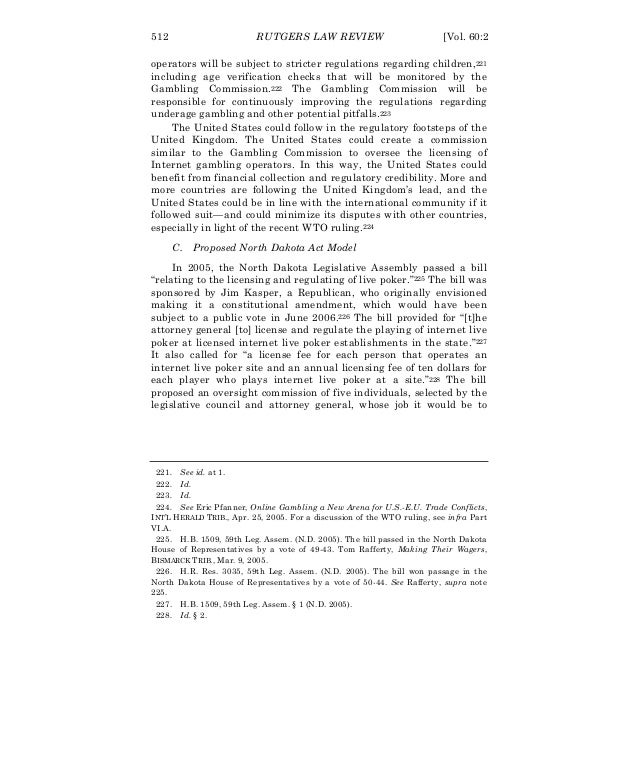Uigea
When talking about the history of online poker, you only have to look at the past decade and certain key events which took place and had a considerable impact on today’s online poker world. One such event was the UIGEA, which we’ll go on to discuss in more detail below.
The Unlawful Internet Gambling Enforcement Act of 2006 was signed into law by President George W. Bush in October of 2006.The overarching aim of the UIGEA is to disrupt illegal online gambling operations by targeting their finances. The UIGEA does so by making it a criminal offense for financial firms in the US to process payments to or from illegal gambling and betting sites. The UIGEA outlines criminal penalties to include up to five years in prison, fines, and being banned from future gambling activities. So, the UIGEA is an enforcement act that can be used to add penalties to existing crimes for internet gaming operators that process financial transactions. 2006 (UIGEA or Act), 31 USC 5361-5366, and sets forth procedures for reviewing compliance by financial institutions with the joint rule promulgated pursuant to the Act by the Department of the Treasury (Treasury) and the Board of Governors of the Federal Reserve System (Federal Reserve Board).

Since online poker’s inception in the late 90′s, the online poker industry has experienced steady growth but has also had its fair share of setbacks. Following Chris Moneymaker’s win in 2003, online poker experienced exponential growth, and the game, both online and live became more and more popular. The industry continued to grow for a few years when the UIGEA, also referred to as the Unlawful Internet Gambling Enforcement Act was established.
More specifically, the UIGEA is Title VIII of the Safe Port Act of 2006, which was passed into law when it was added last minute by President George Bush to the Safe Port Act. The bill’s biggest supporters included UIGEA included Jim Leach, Robert Goodlatte, Bill Frist and Jon Kyl. All of them were republicans. There were a lot of people who were outraged that these US politicians were allowed to sneak the UIGEA through on the back of an unrelated bill in such an underhanded manner. Independent polls at the time showed that the majority of Americans believed that they should have the right to decide whether they gamble online or not.
This gambling bill created a big grey area for online poker players in the United States, brought about because the bill was so vague and no company or person could figure out exactly what type of gambling was considered unlawful. At the time of the UIGEA’s passing many understood the law prohibited players from participating in online gambling, which online poker was considered at this time, however, there were strong proponents in the world of online gambling that believed the UIGEA didn’t make playing online poker illegal. It made processing transactions from financial institutions and banks between online gambling websites illegal.
The purpose of the UIGEA was to protect players and to provide online gambling operators with a set of ethical banking processes to adhere to. It was not designed to target players, but rather the processes involved in funding player’s online gambling accounts. However, since the 2006 bill blocked financial institutions from processing transactions, players may find it more difficult making deposits and withdrawals from online poker sites.
The passing of the UIGEA lead to several of the biggest payment processors including Neteller, FirePay, Citadel Commerce and others to cease operating in the U.S. market, forcing online poker players in the United States to look at other alternative funding options if they wanted to continue playing poker online.
It also resulted in the shutdown of many online gambling and online poker sites, including Party Poker and Pacific Poker, both of which were two of the biggest sites accepting players from the United States. They completely withdrew from the USA market to focus on other international markets and this literally happened overnight. Both operators have only just recently returned to the U.S. following the regulation of online gambling laws in a few states.
Some online poker sites made the decision to stay in the US, including PokerStars and Full Tilt Poker. Both of these sites really benefited from the passing of the UIGEA since they were the best sites still available to US players so many flocked to these rooms. But they no longer continue to service US customers, following the Black Friday indictments, making online poker players in the United States have to look for other alternatives once again.

At the time of this writing article, Nevada, New Jersey and Delaware have all passed laws that permit online gambling for their residents. However, apart from those states, there are currently not any other federal or state laws which legalize online gambling, or prohibit offshore operators for US players. Other U.S. states would no doubt be paying close attention to what was happening in regulated markets, and it would be expected that other states will follow suit, either doing it alone and setting up their own frameworks or combining player pools and resources is also a real possibility.
For players who reside in states where online poker is not yet subject to regulation and licensing requirements, it’s important to realize that gambling laws and regulations never have specifically targeted players. Even post-UIGEA, players have had to deal with the fiasco of Black Friday, when three of the largest online poker sites accepting players from the United States were shut down. During the investigations, no US residents who played poker online for money have been prosecuted or arrested.
Uigea
Overall, even with the setbacks, there are still plenty of opportunities for playing poker online for those who reside in the US.